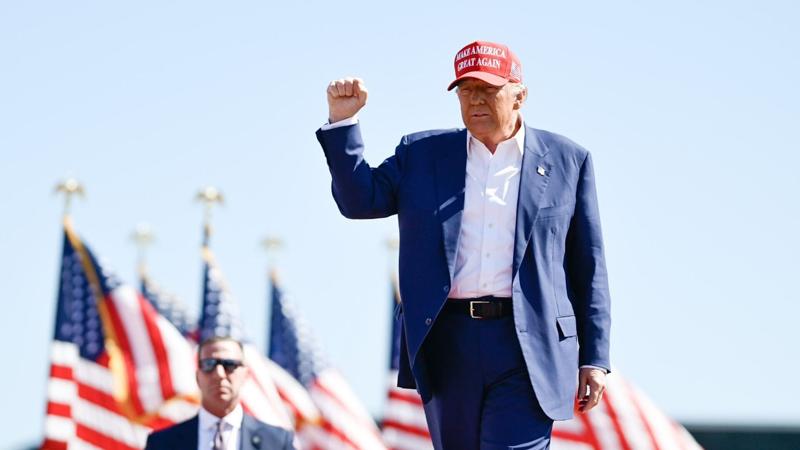Former President Donald Trump’s jumble of tax proposals could shrink the economy and grow the U.S. debt, according to analysts.
While Trump has not released a formal tax plan with specific details, he has proposed multiple tax policies that could affect Americans, the U.S. economy and the growing federal debt, according to the Tax Foundation.
Trump has proposed to extend the expiring 2017 Tax Cuts and Jobs Act changes, reduce the corporate income tax rate, exempt tips and Social Security benefits from tax, impose a 10% or higher universal baseline tariff on all imports, and raise existing tariffs on China to at least 60%. He has also discussed replacing the individual income tax with tariffs.
Combined these moves could add $1.2 trillion over the next decade, according to the Tax Foundation debt estimate. That estimate includes the full suite of proposed tariffs and repeal of the Inflation Reduction Act.
The Tax Foundation’s conclusion wasn’t optimistic.
“Overall, Trump’s policies would reduce distortions in one part of the tax system, namely income taxes, only to replace them with new distortions in another part of the tax system, namely tariffs,” according to the analysis. “The combination of policies under consideration risks shrinking the economy and growing the debt.”
A Congressional watchdog told President Joe Biden and Congress in February that the federal government is on an “unsustainable long-term fiscal path.” The report from the U.S Government Accountability Office said federal spending levels couldn’t be supported long term.
In March, the Congressional Budget Office projected “interest costs more than double in relation to GDP between 2024 and 2054, driven by rising interest rates and growing debt.”






